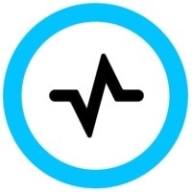

IBM Security QRadar and Graylog Enterprise are prominent competitors in the security information and event management (SIEM) and log management space. IBM QRadar leads with its comprehensive capabilities, while Graylog Enterprise is favored for its cost-effectiveness and flexibility, particularly in Elasticsearch integration.
Features: IBM Security QRadar offers rapid insight capabilities, user behavior analytics, and custom parsers beneficial for threat detection and third-party solution integration. Its correlation engine and extensive integration are standout features. Graylog Enterprise excels in Elasticsearch integration, flexible searching, and alert configurations. It provides openness with numerous free features, enhancing its appeal as a cost-effective solution.
Room for Improvement: IBM Security QRadar can improve its integration capabilities with various security products and cognitive systems. Enhanced API support and more streamlined backup and automation processes are needed. Graylog Enterprise could enhance its documentation and customer support. The user interface needs to be more intuitive and offer better customization and diverse system support.
Ease of Deployment and Customer Service: IBM Security QRadar provides varied deployment options, including on-premises, public, private, and hybrid clouds. Customer service receives mixed reviews, with responsiveness issues noted. Graylog Enterprise, typically deployed on-premises or hybrid models, receives commendation for its community support. However, its service team faces challenges compared to enterprise-grade support in responsiveness.
Pricing and ROI: IBM Security QRadar is perceived as a premium-priced solution with costs driven by EPS and licensing complexities. Despite this, its robust performance and integration options justify the investment for many users. Graylog Enterprise, with its free open-source edition, offers a cost-effective model allowing trial before committing to the enterprise version, making it suitable for budget-conscious organizations. Both solutions report favorable ROI, though IBM QRadar aligns with larger investments, whereas Graylog excels in cost-sensitive environments.
| Product | Market Share (%) |
|---|---|
| IBM Security QRadar | 3.8% |
| Graylog Enterprise | 6.0% |
| Other | 90.2% |


| Company Size | Count |
|---|---|
| Small Business | 8 |
| Midsize Enterprise | 4 |
| Large Enterprise | 7 |
| Company Size | Count |
|---|---|
| Small Business | 89 |
| Midsize Enterprise | 36 |
| Large Enterprise | 102 |
Graylog Enterprise, recognized for log collection, real-time search, and enriched data handling, offers an open-source framework that integrates seamlessly with Elasticsearch. Its user-centric interface streamlines data correlation and log aggregation, supporting both backend services and comprehensive monitoring needs.
Graylog Enterprise stands out for its stability and powerful log management capabilities, facilitating efficient log aggregation, real-time updates, and data analytics. Users benefit from its plugin-based alerting, user-friendly interface, and support for microservices, including Docker integration. The ability to search in detail, flexible API integration, and data enrichment features are highly valued. Challenges include collector application issues, desired visualization enhancements, and authentication integration improvements. Users seek advancements in UI customization, backup functions, and easier rule creation.
What are Graylog Enterprise's most important features?In industrial use, Graylog Enterprise is crucial for audit trailing in financial sectors, facilitating security event identification and error monitoring. Backend teams leverage real-time analytics for swift issue resolution, while developers appreciate the comprehensive log visualization enabled by Docker integration for microservice management.
IBM Security QRadar (recently acquired by Palo Alto Networks) is a security and analytics platform designed to defend against threats and scale security operations. This is done through integrated visibility, investigation, detection, and response. QRadar empowers security groups with actionable insights into high-priority threats by providing visibility into enterprise security data. Through centralized visibility, security teams and analysts can determine their security stance, which areas pose a potential threat, and which areas are critical. This will help streamline workflows by eliminating the need to pivot between tools.
IBM Security QRadar is built to address a wide range of security issues and can be easily scaled with minimal customization effort required. As data is ingested, QRadar administers automated, real-time security intelligence to swiftly and precisely discover and prioritize threats. The platform will issue alerts with actionable, rich context into developing threats. Security teams and analysts can then rapidly respond to minimize the attackers' strike. The solution will provide a complete view of activity in both cloud-based and on-premise environments as a large amount of data is ingested throughout the enterprise. Additionally, QRadar’s anomaly detection intelligence enables security teams to identify any user behavior changes that could be indicators of potential threats.
IBM QRadar Log Manager
To better help organizations protect themselves against potential security threats, attacks, and breaches, IBM QRadar Log Manager gathers, analyzes, preserves, and reports on security log events using QRadar Sense Analytics. All operating systems and applications, servers, devices, and applications are converted into searchable and actionable intelligent data. QRadar Log Manager then helps organizations meet compliance reporting and monitoring requirements, which can be further upgraded to QRadar SIEM for a more superior level of threat protection.
Some of QRadar Log Manager’s key features include:
Reviews from Real Users
IBM Security QRadar is a solution of choice among users because it provides a complete solution for security teams by integrating network analysis, log management, user behavior analytics, threat intelligence, and AI-powered investigations into a single solution. Users particularly like having a single window into their network and its ability to be used for larger enterprises.
Simon T., a cyber security services operations manager at an aerospace/defense firm, notes, "The most valuable thing about QRadar is that you have a single window into your network, SIEM, network flows, and risk management of your assets. If you use Splunk, for instance, then you still need a full packet capture solution, whereas the full packet capture solution is integrated within QRadar. Its application ecosystem makes it very powerful in terms of doing analysis."
A management executive at a security firm says, "What we like about QRadar and the models that IBM has, is it can go from a small-to-medium enterprise to a larger organization, and it gives you the same value."
We monitor all Log Management reviews to prevent fraudulent reviews and keep review quality high. We do not post reviews by company employees or direct competitors. We validate each review for authenticity via cross-reference with LinkedIn, and personal follow-up with the reviewer when necessary.